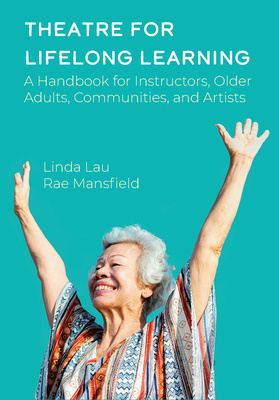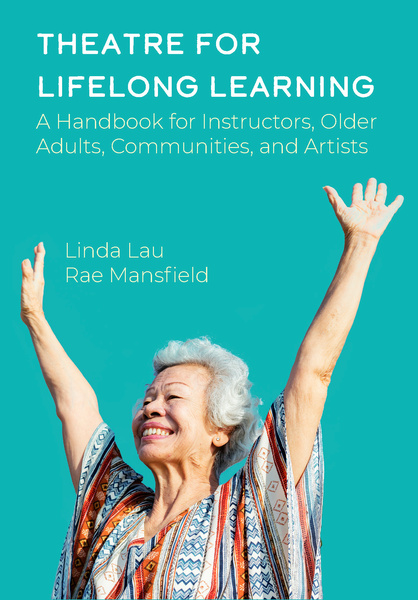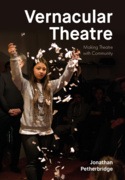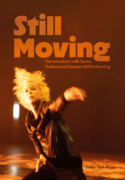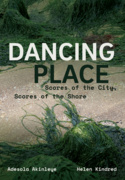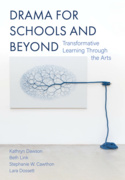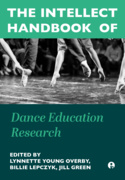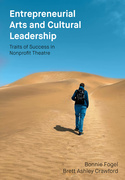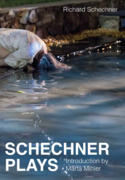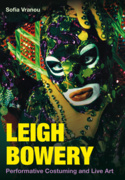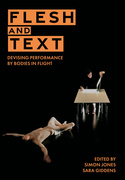Theatre for Lifelong Learning (Book)
A Handbook for Instructors, Older Adults, Communities, and Artists
Theatre for Lifelong Learning: A Handbook for Instructors is a step-by-step guide for anyone interested in teaching theatre courses for older adults. It provides syllabi, discussion questions, resource lists, classroom management strategies, and activities. 7 b&w illus.
Edition
Theatre for Lifelong Learning is a step-by-step guide for anyone interested in teaching theatre courses and creating theatre with older adults.
This book provides instructors with syllabi, discussion questions, classroom management strategies, resource lists, and activities to teach courses from beginning to end. Special topics include Playwriting, Play Development, Storytelling, Theatre Appreciation, Theatre Criticism, Theatre History, and Theatre Theory.
This book helps readers become confident, informed instructors of older adult learners. Theatre for Lifelong Learning is a tool for anyone who wants to build theatrical communities and support the emotional well-being of older adults through education, practice, and experimentation while also having fun.
Theatre for Lifelong Learning is a complete guide to navigate the theatre classroom from beginning to end. Anyone can become a theatre expert and educator with practice. If you already have a background in performing arts, this book provides strategies that are useful for you as well. If you have experience as an educator, this book will enrich your current skill set with interdisciplinary approaches. Tips and examples throughout assist you in creating and maintaining an accessible environment and making courses your own.
So how can teaching and learning about theatre help us live in the moment? When we are not engaged, it’s easy to forget that we are capable, curious, creative people who can expand our knowledge and experiences every day. Theatre encourages finding meaning in small things, chance encounters, and the tapestry of life. All the material provided in this book will motivate instructors and students to get involved.
It will be most useful for arts practitioners, participatory practitioners, institutional educators and community outreach officers, independent theatre instructors. Of potential interest to scholars and researchers in age studies, or in teaching and learning. May also be useful for community arts organizations, regional theatres, and non-profit organizations working with older adults.
Linda Lau and Rae Mansfield are theatre arts educators, drama Ph.D.’s, and co-founders of the Theatre for Lifelong Learning Project. Linda teaches theatre at the Older Adults Program at Santa Rosa Junior College. Rae is Honors Faculty-in-Residence at the University of Massachusetts, Lowell. Their collaboration began through writing plays about underrepresented populations, social problems, and unconventional people struggling with normality. They are interested in inspiring people to participate in theatre regardless of background or experience, challenging audiences and artists to think critically about the world we live in, and helping people make connections to create communities.
List of Figures
Preface: Why Older Adult Theatre?
- Older Adults Pursuing the Now
- The Three D’s in Popular Culture
- Changing Perceptions of Older Adults through Theatre
- Benefits of Older Adult Theatre Courses
Introduction
- How to Use This Book
- The Lifelong Learning Theatre Instructor
- Our Approach to Theatre for Lifelong Learning
- Inclusivity and Play for Older Adult Theatre
- Where Do I Begin?
1. Collaborating with Older Adults
- What Are the Challenges?
- Suggested Best Practices
- Theatre for the Virtual Classroom
- How to Help Your Students Learn Online
- Course Evaluations
- Things to Remember
- Our Learning Philosophy
2. Theatre Appreciation
- What Is Theatre Appreciation?
- How Do I Put Together a Course?
- How Do I Select and Organize Topics?
- What Activities and Discussions Can I Do?
- How Do I Run the Course?
- What Do I Include on the Syllabus?
- Sample Syllabi
- Additional Resources
3. Theatre History, Theory, and Criticism
- What Are Theatre History, Theory, and Criticism?
- How Do I Put Together a Course?
- How Do I Select and Organize Topics?
- What Activities and Discussions Can I Do?
- How Do I Run the Course?
- What Do I Include on the Syllabus?
- Sample Syllabi
- Additional Resources
4. Playwriting, Play Development, and Storytelling
- What Are Playwriting, Play Development, and Storytelling?
- How Do I Put Together a Course?
- How Do I Select and Organize Topics?
- What Activities and Discussions Can I Do?
Playwriting Exercises
Storytelling Exercises
- How Do I Run the Course?
- What Do I Include on the Syllabus?
- Sample Syllabi
- Additional Resources
5. Performance
- What Is Performance?
- How Do I Put Together a Course?
- How Do I Select and Organize Topics?
- What Activities and Discussions Can I Do?
Performance Exercises
- How Do I Run the Course?
- What Do I Include on the Syllabus?
- Sample Syllabi
- Additional Resources
Conclusion: Theatre for All
- Intergenerational Theatre
- Autobiographical and Documentary Theatre
- Theatre and Dementia
- Musical Theatre
- Theatre Repertories
- What Other Opportunities Are Out There?
- Why We Wrote This Book
Notes
Bibliography

